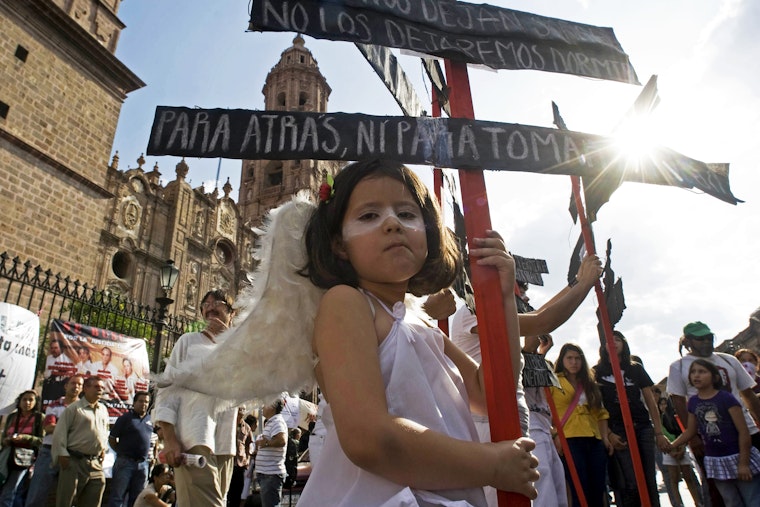Why “Harm Reduction” Means Something Different in Mexico
By Amaya Ordorika

It takes a little getting used to: bringing an illicit substance to an official booth at a rave to have its contents analyzed before you ingest it. At first people tend to be skeptical. Is this some sort of trap? Will I be arrested and thrown into jail? This is Mexico, after all—a country firmly entrenched in the war on drugs.
Ending this war is the main objective of our youth drug policy organization ReverdeSer Colectivo [site in Spanish]. And a key part of that effort are the services we offer at raves and festivals, where you can find us handing out information about drugs, helping patrons having physical or psychedelic problems, and analyzing their pills before they take them to make sure they’re safe to ingest.
This is the essence of harm reduction—an approach that accepts drug use as a fact of life, and works to minimize the risks of such usage. In that spirit, ReverdeSer Colectivo is working with other organizations like Espolea and CUPIHD to implement a substance analysis project in Mexico City. We are engaging with the local addictions institute and human rights commission to establish a lab that could not only analyze substances but also serve as a key place for harm reduction programs for people who use drugs.
Our work doing substance analysis at festivals and raves gives us an opportunity to talk about safer ways to use drugs and to hand out information to people about the drugs they’ll be using.
Our harm reduction efforts go beyond the safety of people who use drugs, however. We also look at drug policies from what we call a Global South perspective. For instance, Mexico isn’t what you would call a “consumer country”; our drug-use rate is low compared to the United States. Accordingly, our harm reduction efforts don’t focus exclusively on mitigating the harms of drug use, but rather all the harms that a prohibitionist policy causes.
This viewpoint was actually informed by a 2012 journey through the United States on the Caravan for Peace with Justice and Dignity, a 120-person convoy made up of family members of Mexicans killed and disappeared during the drug war. We visited American communities where it’s easier to access guns than it is to access food, communities where local dynamics make people more likely to become involved in the drug trade and end up incarcerated. In Mexico, our communities are harmed by the drug war as well: people are being killed, disappeared, and incarcerated at alarming rates.
When we got back to Mexico, we got involved with the victims’ movement there, working with groups called Familiares en Busqueda María Herrera and Enlaces Nacionales, a national network of organizations for families with missing relatives. Over a thousand families are involved, and it’s growing bigger every day.
Family involvement is important, because these issues affect Mexican youth in particular—youth who are being murdered and disappeared disproportionately. Most of the disappeared are young men, and murders of women are going completely unseen because of the violence that surrounds them. Right now, the voices speaking out about this are of the older generation, because it’s our parents, grandparents, aunts, and uncles who are the ones looking for us.
But the voices of young people are key: we bring a fresh perspective and renewed energy. When you’re younger, you’re less jaded. You’re still surprised by injustice and willing to fight it.
We need to go out and say we won’t let this fear work. Fear controls you. Fear makes you not use public spaces. Fear makes you not protest. We want to represent our missing people and make sure they’re not forgotten.
ReverdeSer Colectivo is a member of the International Drug Policy Consortium, a grantee of the Open Society Foundations.
Amaya Ordorika is a member of ReverdeSer Colectivo.
